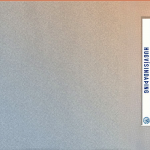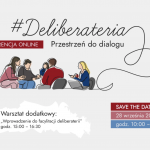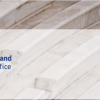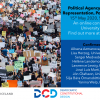The Political Agency after Covid-19 online conference was held on 15. May 2020 as the world is facing a pandemic that requires not only global effort but presents a trial of political leadership for governments around world.
Each talk is around 40 minutes, including comments and discussion and they are listed here according to order they were presented at the conference, starting with Opening remarks by the Prime minister of Iceland, Katrín Jakobsdóttir.
Albena Azmanova, University of Kent
“Battlegrounds of justice — what really grieves the 99%”
Before the pandemic, progressive forces were mobilising under the banner of fighting inequality. The pandemic, however, has revealed that the scourge of our societies is the generalised precarity — the massive economic and social fragility that four decades of cuts to public spending created. What policies are necessary for a swift change of direction?
Commentator: Bakar Berekashvili, Georgian American University
José Luis Marti, Pompeu Fabra University
“Collective Intelligence in Times of Crisis: Crowdcourced emergency decision-making against the Expertocracy Temptation”
One of the temptations that many governments face in situations of emergency is a well-intentioned turn towards expertocracy, under the assumption that normal democratic politics and ordinary citizens are not able to deliver good and correct decisions. For many, democracy in general, in participatory democracy in particular, should be partially suspended or limited during crises like this. But this is very wrong. Evidence from previous emergency situations show how crowdsourced mechanisms of emergency decision-making, under the rights circumstances, may be the best way to improve the quality of decision making, as much as it’s legitimacy. I’ll revise different ways in which collective intelligence may be of great help in times of crisis like this.
Commentator: Eyja Margrét Brynjarsdóttir, University of Iceland
Lisa Herzog, University of Groningen
“Presentation on trust in science and democratic policy-making”
One thing that the Corona crisis has made very visible is our dependence on scientists – the press conferences of virologists and epidemiologists have become a daily ritual in many countries. I would argue, however, that structurally speaking, such a dependence on scientists and other experts has existed long before, and that it should be understood as a relationship of trust, rather than mere reliability. I discuss whether and how this dependence can be squared with democratic principles, drawing on Albert Dzur’s work on “democratic professionalism”. I conclude by briefly reflecting on implications for democratic practices such as minipublics or other participatory formats.
Commentator: Arne Hintz, Cardiff University
Jón Ólafsson, University of Iceland
“An epistocratic interregnum: The attraction of leaving decisions to specialists.”
Abstract: The prominence of health officials in managing the pandemic has for the most part been a relief to a distrusting public. The specialists are seen as objective and responsible, able to limit recommendations and decisions to what is necessary. Will this experience of a brief period where policies are actually determined by best knowledge make the public more open to a larger specialist role in government? Would that be desirable?
Commentator: Zhar Zardykhan, KIMEP University Almaty
Silja Bára Ómarsdóttir, University of Iceland
Pandemics and perceptions: ontological security in Iceland
In a 2016 study in Iceland, participants in a survey were asked to identify the main threats they perceived to their own security and that of the state. The focus was by and large on natural and environmental threats, as well as economic stability. Fear of pandemics threatening national security was minimal, but somewhat higher when it came to threats to personal security. In this talk, I ask whether the perception of security, the feeling of being safe, is more important than the state’s ability to provide security.
Commentator: Just Serrano Zamora, University of Groningen
Sergei Medvedev, Higher School of Economics, Moscow
“The return of nature: eco- and biopolitics of the pandemic”
The current crisis has suddenly revealed the critical role of Nature in our civilization, bringing us back to “bare life”, the biological core of our existence, and placing biopower at the core of the emerging political order. In its origins, the pandemic is rooted in the broken interface between the Human and Nature — so the remedy might be found in reparing this relationship. The exit from the crisis might as well be green, and Nature might be awarded a stronger political agency.
Commentator: Nanna Hlín Halldórsdóttir, University of Iceland
Lawrence Lessig, Harvard University
“Democracy in the context of the Covid-19 crisis”
Lessig revisits a topic we discussed in Reykjavík two weeks before the start of the pandemic. What can the crisis of democracy in America can tell us about democracy and the rest of the world, now in the context of the Covid-19 crisis. Things have gone from bad to worse. Unlike many other countries the US has seen increased polarization, to the extent that understanding of most objective facts about the virus is often subject to partisan interpretation. In this talk Lessig explores these problem and urges that Americans must to act now to fix democracy and flawed electoral system.
Commentator: Viktor Orri Valgarðsson, Durham University
Yanina Welp, Geneva Graduate Institute of International and Development Studies
“Loyalty, voice or exit? Reflections from the Latin American experience”
Abstract: several surveys have described a global democratic decline. How will the pandemic affect it in Latin America? The region is characterized by a cyclical economical crisis, weak health systems and presidential regimes in which the executive popularity conditions the stability of the government. Will the crisis create opportunities for increased critical public engagement and possibilities for more participatory and inclusive political agency or will lead to more citizen’s disengagement and power concentration in the executive?
Commentator: Hólmfríður Garðarsdóttir, University of Iceland
Hélène Landemore, Yale University
“Democracy in the Time of Cholera”
The French government recently established a Citizen’s Assembly on climate change. This assembly like many others that have been held in the last few years show that citizens can deliberate on complex and hotly debated issues. In this talk, Hélène Landemore talks about the lessons from the French case, in particular the relations and power balance between the citizen representatives and the experts that advised the assemblies . Landemore argues that Citizens could, and should be consulted, even in the times of crisis. Commentator: Brendan Hogan, New York University
Concluding Discussions
Speakers and participants discuss topics that emerged during the conference.





















